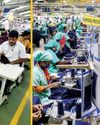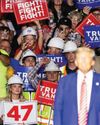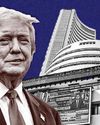Readers familiar with Bengali literature are likely to be acquainted with Manik Bandyopadhyay’s famous short story Shilpi (artist).

The protagonist Madan Tanti (weaver) refused to weave towels and stop producing the famed Benarashi silk sarees as ordered by his Zamindar. The story set in pre-independence India explores the plight of weavers like Madan Tanti who were then forced to withdraw from their traditional craft of weaving Benarashi silk sarees and instead forced to weave towels by their Zamindari lords. The story reveals the conflicts faced by these weavers and was a brilliant representation how traditional artisans were forced out of their trade.
Cutting back to the present, recent government data show a nearly 30% drop in traditional artistry and employment in the handicraft sector. Handloom is an important part of the Indian handicrafts and the segment has been negatively impacted by the recently rolled out Goods and Services Tax (GST). Marking this year as the worst year for his trade in the last decade, Supendra Basak, a textile businessman of Phulia, Nadia district, West Bengal said, “Unfavourable effects of GST can be clearly seen in the handloom industry. GST refunds and hazardous way-bill procedures are delaying our progress. Another problem is that the new tax regime does not distinguish between handmade and machine made products. That is unfair and hampers the growth of the industry.”
Problems of the handicraft sector in India
Bu hikaye BUSINESS ECONOMICS dergisinin August 1 - 15, 2018 sayısından alınmıştır.
Start your 7-day Magzter GOLD free trial to access thousands of curated premium stories, and 9,000+ magazines and newspapers.
Already a subscriber ? Giriş Yap
Bu hikaye BUSINESS ECONOMICS dergisinin August 1 - 15, 2018 sayısından alınmıştır.
Start your 7-day Magzter GOLD free trial to access thousands of curated premium stories, and 9,000+ magazines and newspapers.
Already a subscriber? Giriş Yap

Bank of Baroda, Kolkata Zone organised Mega Kisan Melas in West Bengal
Bank of Baroda (BOB) organised Mega Kisan Mela at Konkalitala in Birbhum District of West Bengal on November 18, 2024 as a part of the 7th Edition of the Baroda Kisan Pakhwada (BKP).

Time-Bound Disposal of Cases to Expedite the Delivery of Justice and affordabe by all in India
The delay in the disposal of cases in Indian courts remains a significant hurdle to the nation's progress.

Dev Deepawali: A grand celebration of light, spirituality, and culture in Varanasi
The holy city of Varanasi, often regarded as India's spiritual and cultural heart, came alive with the splendor of Dev Deepawali on the sacred day of Kartik Purnima.

The life of Job 'Ye judge not the judgment of God' - Jesus Christ
The Holy Bible reveals through the life of Job how the Lord tests the righteous and that faith helps one to overcome life's adversities.

India has the highest potential for the garment industry, only a conducive government policy is required.
India's textile industry is poised for remarkable growth, with expectations to double its contribution to the GDP within the next six to seven years.

Global Public Debt may be worse than it appears, warns IMF
Global Public Debt Set to Exceed $100 Trillion, Warns IMF

The economic consequences of Trump's Presidency: A global perspective
One of the key economic factors contributing to the Democrats' loss in the US elections was the significant rise in inflation, which was initially triggered by the COVID-19 pandemic and exacerbated by the Russia-Ukraine war.

Challenges and Successes in West Bengal's Education Sector: A Comprehensive Overview
The education system in West Bengal, particularly in districts, villages, slums, and government institutions, reflects a blend of progress and ongoing challenges.

What India can expect from Trump's return
I may be too early to predict how Donald Trump's second term as president will impact the global oil market.

Stocks Surge Following Donald Trump's Election as 47th President of the USA
Stocks soared following the election of Donald Trump as the 47th President of the United States. Investors anticipated that the Information Technology (IT) sector would benefit from lower corporate taxes under the Republican regime, with IT stocks leading the rally.